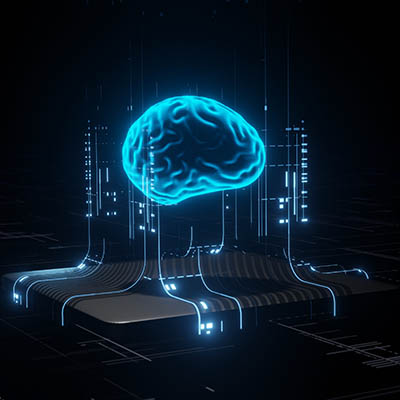AI, or artificial intelligence, has intrigued us for decades, from the science fiction of Isaac Asimov to the first scientific research at Dartmouth College in the late nineteen-fifties. We may not realise it, but artificial intelligence is already present in some form in many of the technologies we use every day, and its use and potential continue to develop. When it comes to business technology and data analysis, AI has some benefits, but also negatives. Let’s take a look at some of those pros and cons.
What is Artificial Intelligence?
Humans and animals have what is called ‘natural intelligence’. AI is independent of human input. It’s about machines learning to do things. Specifically, AI depends on computer systems that can be programmed to recognize patterns in data, as well as potential outcomes. The programming involved give the machine the power to act on the conclusions of its analyses. As it does that, it adds its ‘experience’ to its knowledge base and so improves its success as time goes on. As it’s currently used, the term ‘AI’ can describe various technologies and different applications that are used in business.
The Benefits of AI for Businesses
There are three major advantages of AI for businesses:
1) Business Pattern Optimization. The average business generates masses of data every single day. This data is a valuable business asset, but analyzing it to discern patterns and identify opportunities or efficiency problems can be a huge task. With AI, it’s all done for you. It can undertake rapid data analysis and make predictions. These include data that is useful for growing revenue, improving investment returns and condensing sales cycles.
2) Reducing Costs. AI is important in automation. Automation is important for businesses seeking to reduce costs. Many labor-intensive and time-consuming tasks can be handled by AI. Not only can you save money, but your staff is freed up to do other things that will help grow your business.
3) Increasing Revenue. In terms of human resources, AI can help improve your processes and also identify additional revenue-opportunities, all by analyzing the data you’ve accumulated. It can also assist with external processes. For example, it can assist with marketing.
The Disadvantages of AI for Businesses
There are also potential problems with using AI, and here are three to consider:
1) AI’s Bad Reputation. In pop culture, AI is often portrayed as sinister. Isaac Asimov picked up on this years ago in his writing. AI always seems to be seen in black and white terms – either dangerous and creepy or the answer to everything. The truth is rather different. AI isn’t going to solve all the world’s problems, and machines aren’t going to take over and enslave us all.
2) Data Limitations. The quality of data analysis that an automated system can deliver is only as good as the data it has to work with. AI only really works well when it has large quantities of data, that’s organized in the right ways. Not all businesses have sufficient data for AI to be a useful option and, even if they do, it may not be properly organized.
3) Analytical Transparency. It varies, but some artificial intelligence systems are opaque in their workings. You can’t really see how they arrive at their findings. When everything goes well there’s no problem. If the system makes an error, it could create serious problems and you won’t even be able to work out where the mistake in the system is.
AI for Your Business – Yes or No?
On balance, business technology that uses AI has much to offer, so the answer is a qualified ‘yes’…as long as you understand what it can and can’t do, and when and how it can cause problems.
Quikteks can help you with your business technology, including automation that will boost your organization’s productivity. To find out more, call us at (973) 882-4644.

